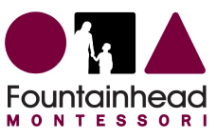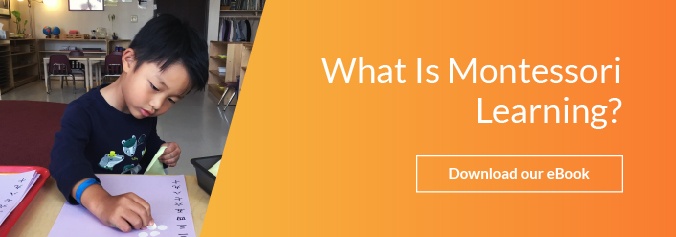As you search through the various options for educating your child, you will find that Montessori education is in a league of its own. The elements that set a Montessori education apart from other types of education are the very elements that will positively impact your child throughout life. Three elements in Montessori education that are unique when compared to other types of education include individualized learning plans, self-directed learning, and mixed-age classrooms.
Individualized learning plans
Montessori education is designed to meet the needs of the individual child. The classrooms are kept intentionally small, so the teacher can spend time interacting with and observing each student. Through those observations and interactions, the teacher creates an individualized learning plan for each child. Each student learns on topics and in ways that are tailored to his or her needs and interests. For example, a child with interest in art can learn about a wide range of subjects using art supplies and techniques. Addition and subtraction can be learned using crayons or paintbrushes. The student can learn about volume with paint. For science, the student can explore how the coloration of each animal is uniquely designed to be useful in that animal’s natural habitat. Montessori teachers are trained to use the unique interests of each child to make learning interesting and engaging.
Self-directed learning
The focus on self-directed learning also sets Montessori education apart from other types of education. In the Montessori classroom, each student has choices when it comes to how he or she learns. The teacher creates stations around the classroom, where students can go to explore a particular concept. At certain times during the day, students get to work independently or in small groups in the area of their choice. Giving students a choice when it comes to how they learn helps them develop a sense of responsibility for their learning – which ultimately helps them grow into life-long learners.
Mixed-age classrooms
Another unique element of Montessori education is the mixed-age classroom. In the vast majority of secondary education programs, students are grouped by age/grade. The Montessori classroom has a mixed-age design in which a range of ages meets in the same classroom. This design allows older students to be leaders, gives the younger students peers to look up to, and teaches everyone important lessons about how to treat others.
Each element of Montessori education is designed intentionally to benefit students in the present and the long-run. Students get an engaging and challenging education and build positive qualities that will help them succeed in life beyond school. If you want to see firsthand what sets a Montessori education apart from other types of education, schedule a time to observe a class.












Let us know what you think about this post
Put your Comment Below: